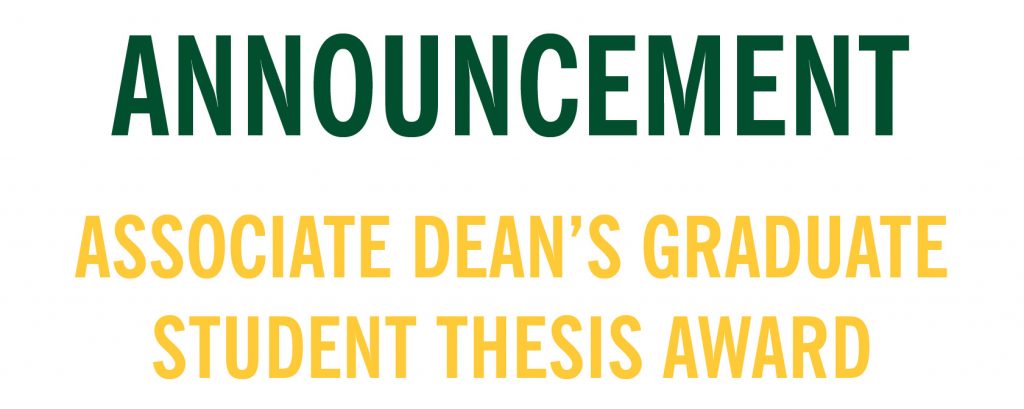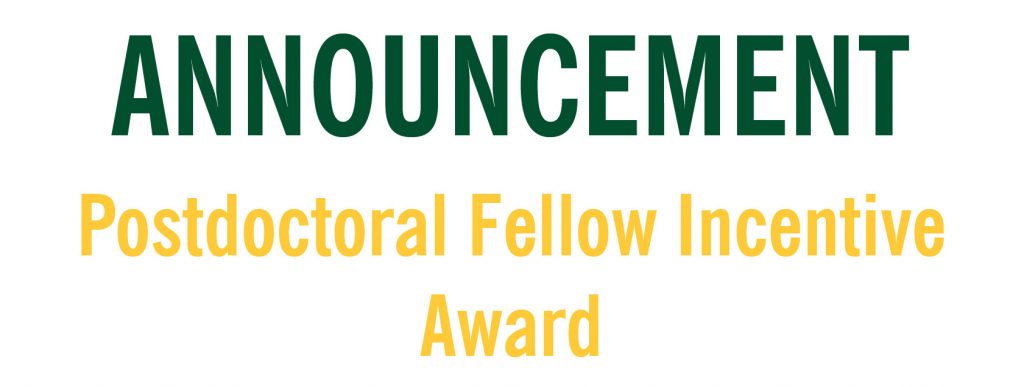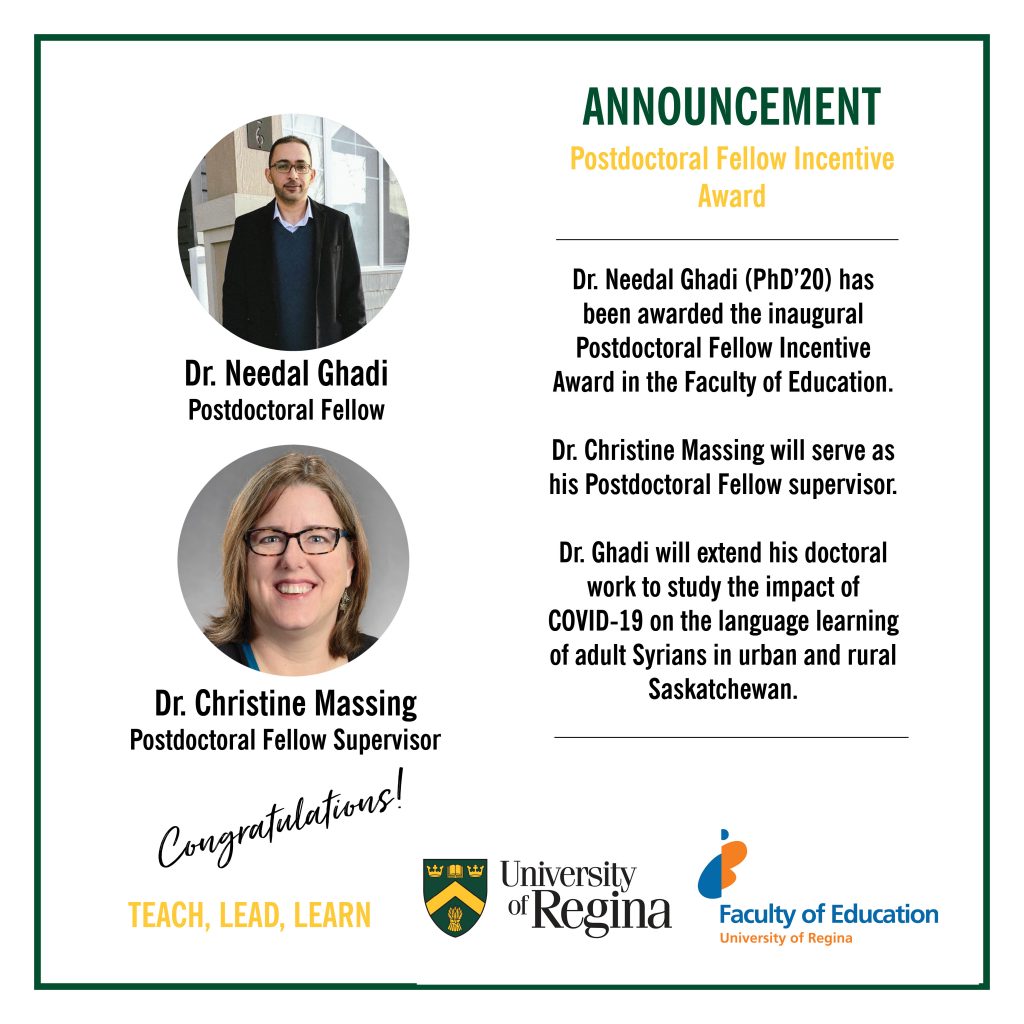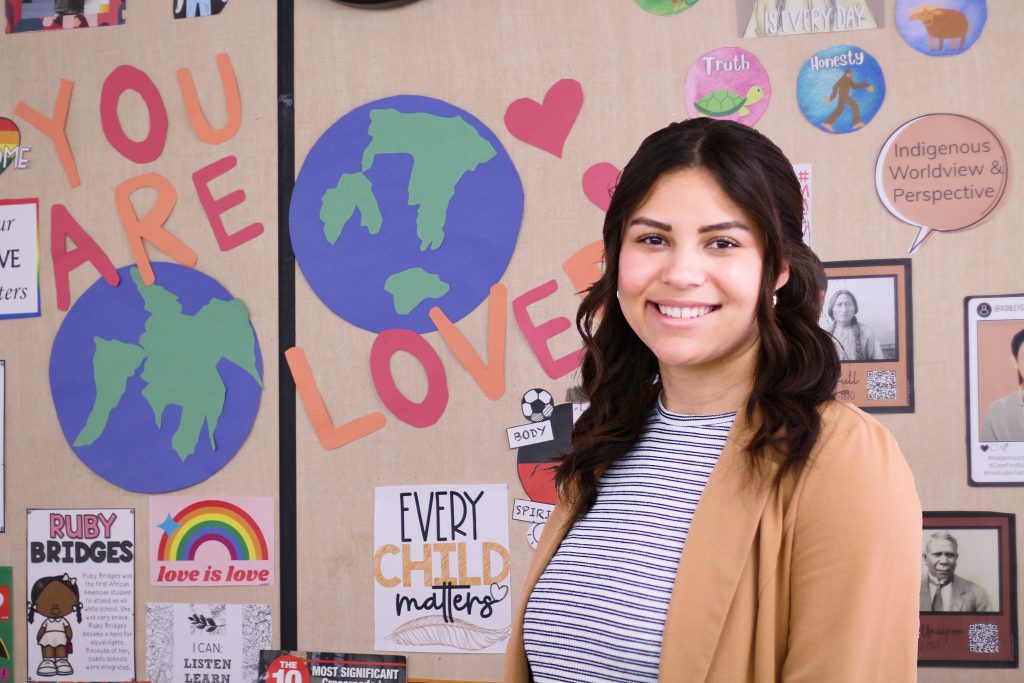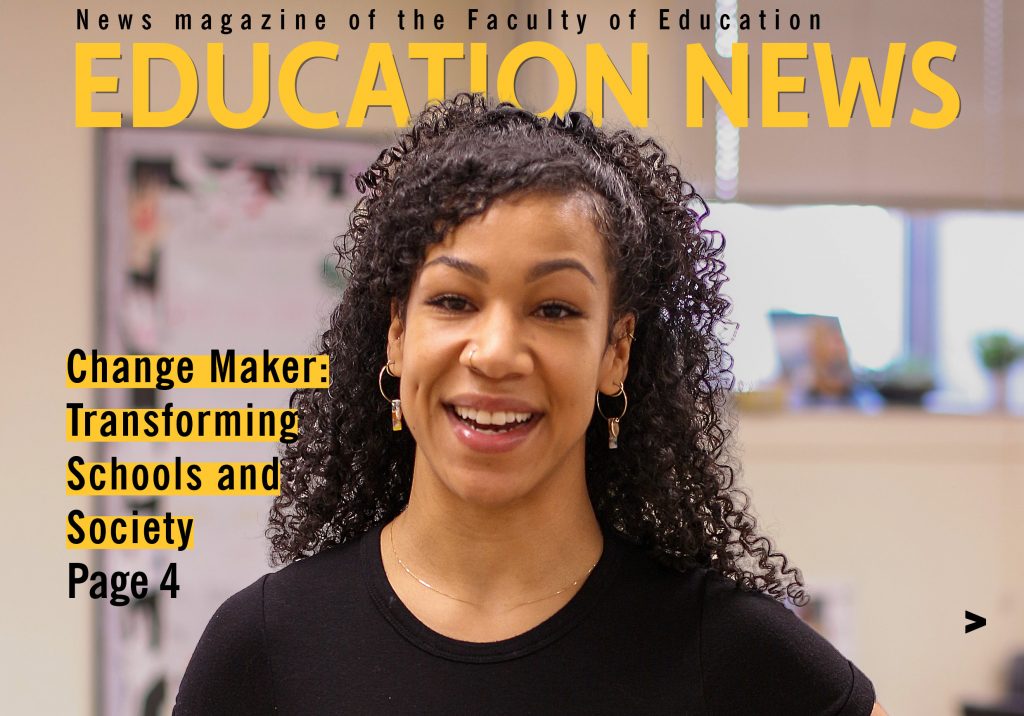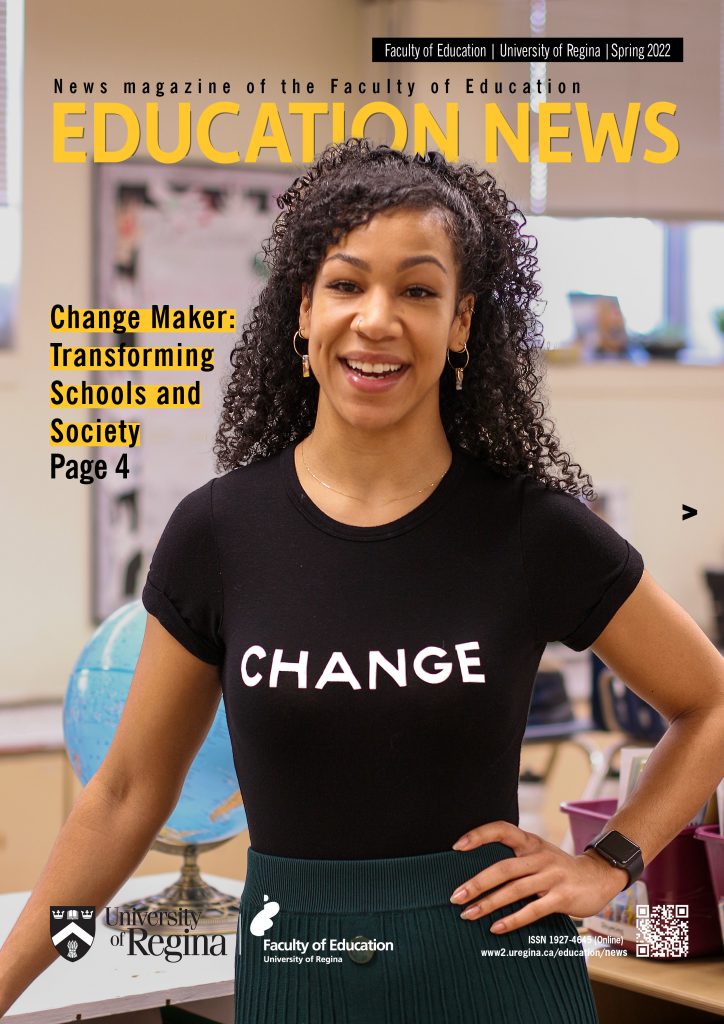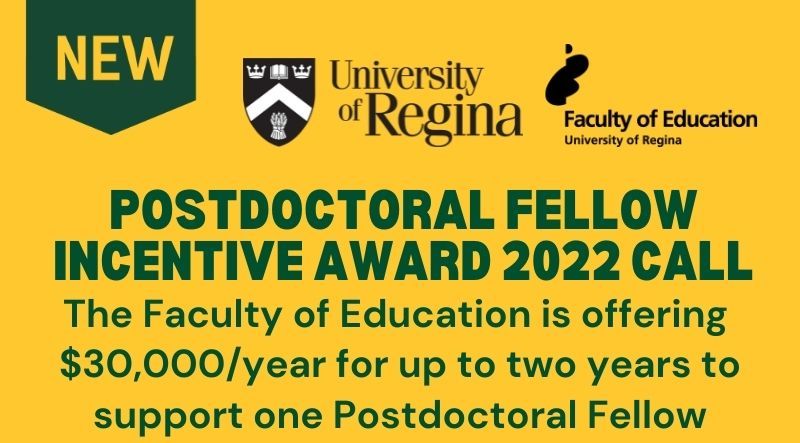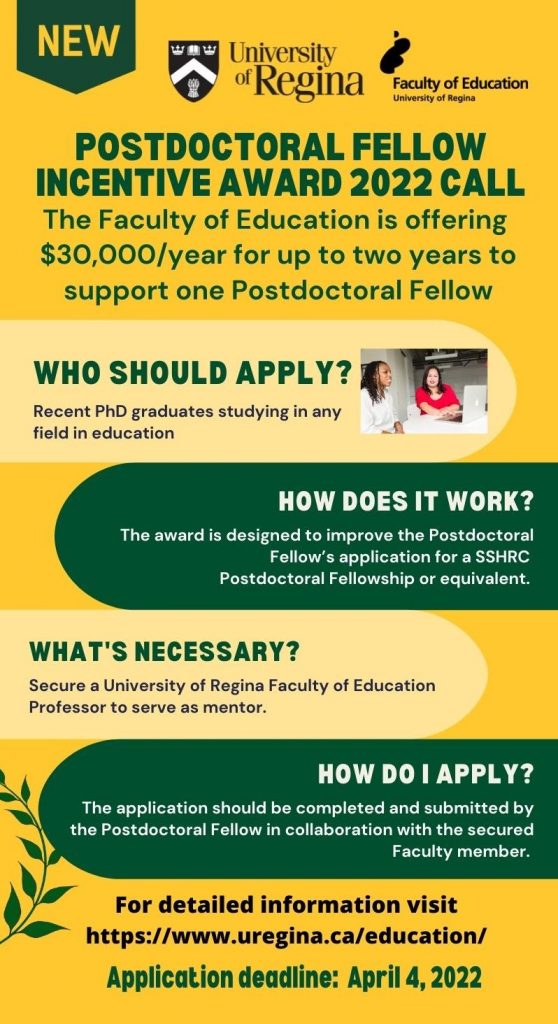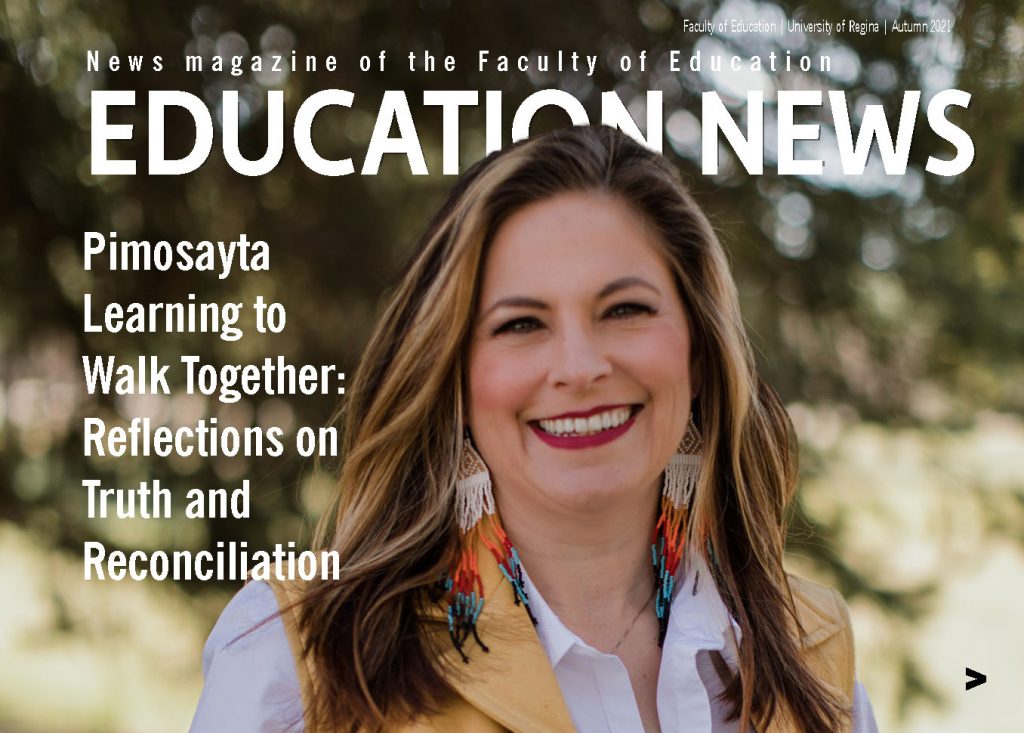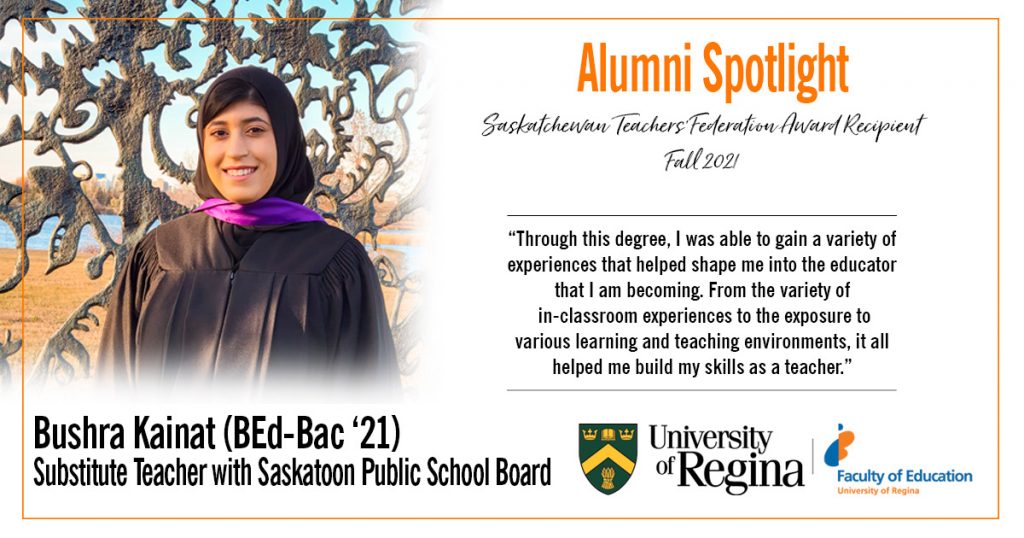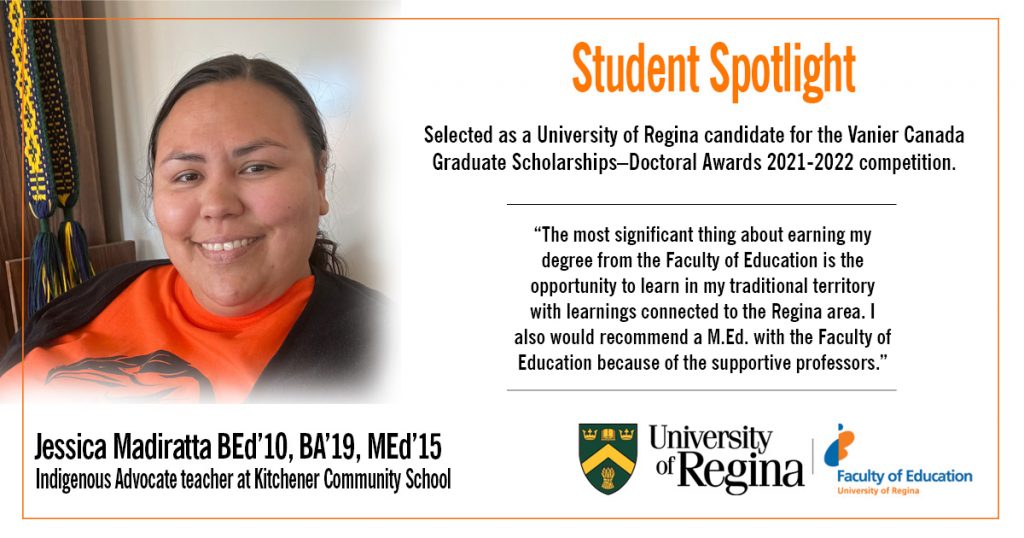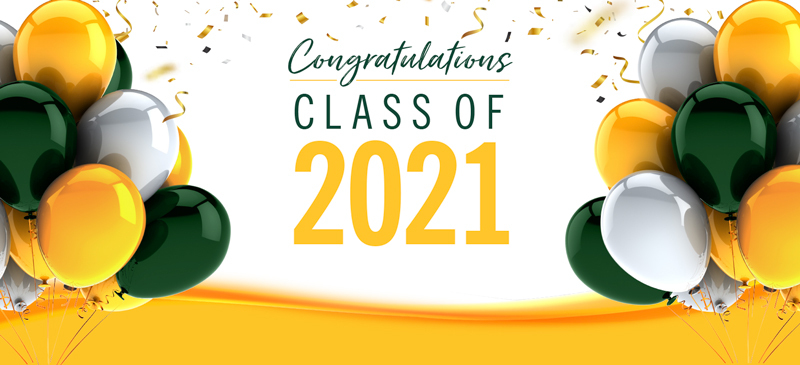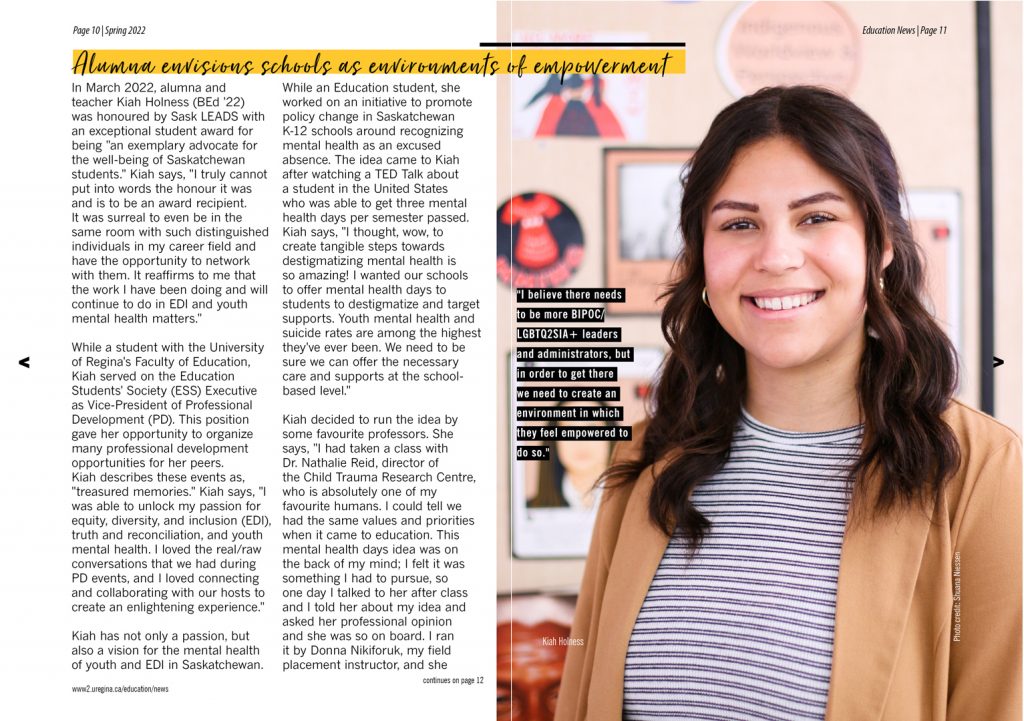 In March 2022, alumna and teacher Kiah Holness (BEd ’22) was honoured by Sask LEADS with an exceptional student award for being “an exemplary advocate for the well-being of Saskatchewan students.” Kiah says, “I truly cannot put into words the honour it was and is to be an award recipient. It was surreal to even be in the same room with such distinguished individuals in my career field and have the opportunity to network with them. It reaffirms to me that the work I have been doing and will continue to do in EDI and youth mental health matters.”
In March 2022, alumna and teacher Kiah Holness (BEd ’22) was honoured by Sask LEADS with an exceptional student award for being “an exemplary advocate for the well-being of Saskatchewan students.” Kiah says, “I truly cannot put into words the honour it was and is to be an award recipient. It was surreal to even be in the same room with such distinguished individuals in my career field and have the opportunity to network with them. It reaffirms to me that the work I have been doing and will continue to do in EDI and youth mental health matters.”
While a student with the University of Regina’s Faculty of Education, Kiah served on the Education Students’ Society (ESS) Executive as Vice-President of Professional Development (PD). This position gave her opportunity to organize many professional development opportunities for her peers. Kiah describes these events as, “treasured memories.” Kiah says, “I was able to unlock my passion for equity, diversity, and inclusion (EDI), truth and reconciliation, and youth mental health. I loved the real/raw conversations that we had during PD events, and I loved connecting and collaborating with our hosts to create an enlightening experience.”
Kiah has not only a passion, but also a vision for the mental health of youth and EDI in Saskatchewan. While an Education student, she worked on an initiative to promote policy change in Saskatchewan K-12 schools around recognizing mental health as an excused absence. The idea came to Kiah after watching a TED Talk about a student in the United States who was able to get three mental health days per semester passed. Kiah says, “I thought, wow, to create tangible steps towards destigmatizing mental health is so amazing! I wanted our schools to offer mental health days to students to destigmatize and target supports. Youth mental health and suicide rates are among the highest they’ve ever been. We need to be sure we can offer the necessary care and supports at the school-based level.”
Kiah decided to run the idea by some favourite professors. She says, “I had taken a class with Dr. Nathalie Reid, director of the Child Trauma Research Centre, who is absolutely one of my favourite humans. I could tell we had the same values and priorities when it came to education. This mental health days idea was on the back of my mind; I felt it was something I had to pursue, so one day I talked to her after class and I told her about my idea and asked her professional opinion and she was so on board. I ran it by Donna Nikiforuk, my field placement instructor, and she was also on board and so was the Dean, Dr. Cranston. Their responses were like, ‘Why haven’t we done this already?'”
With Nathalie’s guidance and support, the two were able to create a comprehensive Mental Health Attendance Policy Proposal, which Kiah says, “goes beyond the initial idea, but where we create professional development and opportunities for in-school mental health days for kids who don’t feel safe at home. We would also collect data to determine the schools that have the most mental health needs—just ensuring they are getting what they need.” Kiah hopes this policy would also create conversations around mental health in schools and at home.
As someone who has struggled with mental health since she was young, Kiah believes public conversations around mental health are important. Mental health was never really talked about at school. When that happens, it feels like you are othered. In high school, I realized how many of my friends struggle with the exact same thing.” Kiah sees that conversations are beginning to happen, but slowly. She has presented her idea to a school division and to Sask LEADS and continues to make plans in the hopes of creating change.
A second vision Kiah is passionate about is creating more representation in the education system. “I believe there needs to be more BIPOC/LGBTQ2SIA+ leaders and administrators, but in order to get there we need to create an environment in which they feel empowered to do so. We need to create an environment in which our marginalized students feel empowered every single day,” she says.
Creating environments of empowerment is all about “representation,” Kiah says, “so students see themselves in positions of power, leadership and authority. But even on a smaller scale, see themselves in literature and daily practices. I want to make sure that as a system, every student is perceived as valued. Having many BIPOC/LGBTQ+ people in leadership will let students know they can aspire to be in leadership in any field.”
This vision for representation, too, comes out of Kiah’s lived experiences. Kiah’s father immigrated to Canada from Jamaica with his family at the age of 4. Her mother’s family immigrated to Canada from the Ukraine in the 1900s. As a bi-racial student in a predominately White school community, Kiah encountered discrimination, racism, and microagressions from her peers and some teachers. Recalling an English class that was reading To Kill a Mockingbird, which repeatedly used an offensive racial slur, Kiah says, “Even if the literature uses racial slanders, I feel there is no ground that teachers should feel comfortable to say it. When the teachers say that word, the students think it is okay to use it. Some of my friends would just say the first three letters of the “n” word and say, ‘Oh, you’re just that.'”
Kiah’s curly hair also became an issue when she went to school: “I had a huge curly afro. I didn’t see a problem with it until I went to school where I was in a predominantly White community and I was the only one with curly hair. I started straightening my hair in Grade 1 or 2. It has taken me 20 years just to start to be comfortable with that part of me and letting it be curly sometimes,” she says.
In high school, Kiah began to find her voice and to relate with many of her teachers, to feel empowered: “A lot of my teachers really saw my potential and they didn’t look first at the colour of my skin, or who I was on the outside, they saw what I could do. I remember one teacher in particular believed in me so much, she pulled me out of my English class one day and she said, ‘Kiah, I believe in you, you are so good at public speaking, I want you to come and be part of this Business CASE competition at the U of R.’ Giving me that opportunity, she understood my strengths, and let me shine. It was so amazing. Instances like that were so empowering, where teachers just believed in me for what I could do rather than seeing the front. But the opposite happened too.”
These experiences inform Kiah’s teaching and her vision for creating environments of empowerment: “I had different privileges than someone who isn’t as White-passing as me. So I definitely learned where that got me in life. But there was also a battle between people who didn’t see me as White–passing, who saw me as Black, and then from others, somedays I would hear, ‘Oh, you don’t even seem Black, you don’t even talk like a Black person.’ What does that even mean? Hearing that I’m not Black enough, and not White enough meant I was constantly trying to figure out where I fit in. All youth are trying to figure out where they fit in. This experience really gave me the foundation to ensure that my classroom was a space that no matter who you were, you would fit in, you would have a place, feel safe and feel brave, and that you could have a conversation about these things.”
“Brave” is a word Kiah adopted from an ESS PD series on anti-racism with Dr. ABC: “Teachers are always talking about creating a safe space, and that’s great, but the idea of a brave space where you feel safe enough and then brave enough to actually go and do something—that just stuck with me, and will stick with me forever. I just really want students to feel brave within themselves, empowered within themselves, that they can do whatever they please, no matter who they are. Who they are and what they look like should not even be a consideration. They should feel like they have the strength and support, everything they need to go out into the world and do it at their best capacity.”
How cultures are represented in school also matters to Kiah. For instance, she says, “With Indigenous learning, we focus so much on the trauma and I think it is really important history, but as much as we are focusing on that, we need to focus on the brilliance behind those cultures. We are learning about death and broken promises every semester in every other class, which is really important for history, but I think it needs to be paired with the beauty and all of the amazing things that come with the Indigenous culture. Every culture is so much more than what happened to them, it’s how they rose from it.” This is wisdom she acquired from her bi-racial uncle who is from Ocean Man First Nation.
Making a difference, changing the world, empowering others: these are the reasons behind Kiah’s decision to become a teacher. “I realized my true ‘why’ behind teaching is that teachers have the power to literally alter the beliefs of society, change the world, and that is simply done through love. When we are leading from a place of love in our classrooms and alongside our students it allows us to give students a brave space to be themselves, to feel acknowledged, respected, safe, welcome, empowered, and above all, loved. I became a teacher to change the world and ignite more love.”
The teaching profession is all about loving relationships, says Kiah, “I think that content is really important and obviously the foundation, the curriculum, but relationships, that’s how we make change. When your students respect you and they listen to what you say, and what you say is about any of the EDI or mental health topics, they’re going to listen to that and take it to heart.”
On her internship, it was relationships that kept Kiah energized: “Those relationships really fueled me. A lot of times I would have students come to me and open up about their mental health struggles. They knew they could talk to me and we would figure it out, or I would walk them to guidance. I felt every single day I was there, it was for a purpose. I was doing what I was supposed to do.”
A highlight for Kiah while an Education student, and one that has given her a taste of what it is like to influence change, was an opportunity in 2021, when she was chosen as the sole student representative for the U of R President’s transitional committee. “That was something I will never forget. Being the student chosen out of all the students at the U of R. I was shocked. To be on a committee with Dr. Jeff Keshen, someone with so much authority, was really impactful for me. And not only to be on that committee, but to actually have real conversations about reform at the University, and BIPOC representation, just to have those conversations was so memorable. I felt like I was just one step away from making a change.”
Kiah is still envisioning her next steps that she hopes will lead to change in schools. She is planning to extend her initial plan for mental health days: “I’ve been thinking about creating a larger scale, more generalized non-profit that works to do the same thing, with the eventual goal of the mental health days, but to create PD opportunities, resources, funding for mental health/ first aid, all of that encompassed, and add in EDI, too: an organization that could really push the boundaries and make these issues a priority in schools.”
Even though she is brand new to the profession, Kiah has successfully pitched a change in her current school that works toward daily calls to action and truth and reconciliation. She is excited to continue to grow in her EDI practices as she moves through her career with Regina Public Schools.
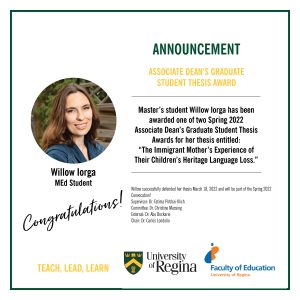
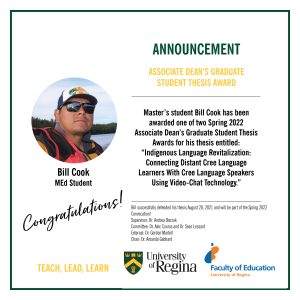 Congratulations to Master’s students Willow Iorga and Bill Cook on being selected as the two recipients of the Spring 2022 Associate Dean’s Graduate Student Thesis Award!
Congratulations to Master’s students Willow Iorga and Bill Cook on being selected as the two recipients of the Spring 2022 Associate Dean’s Graduate Student Thesis Award!